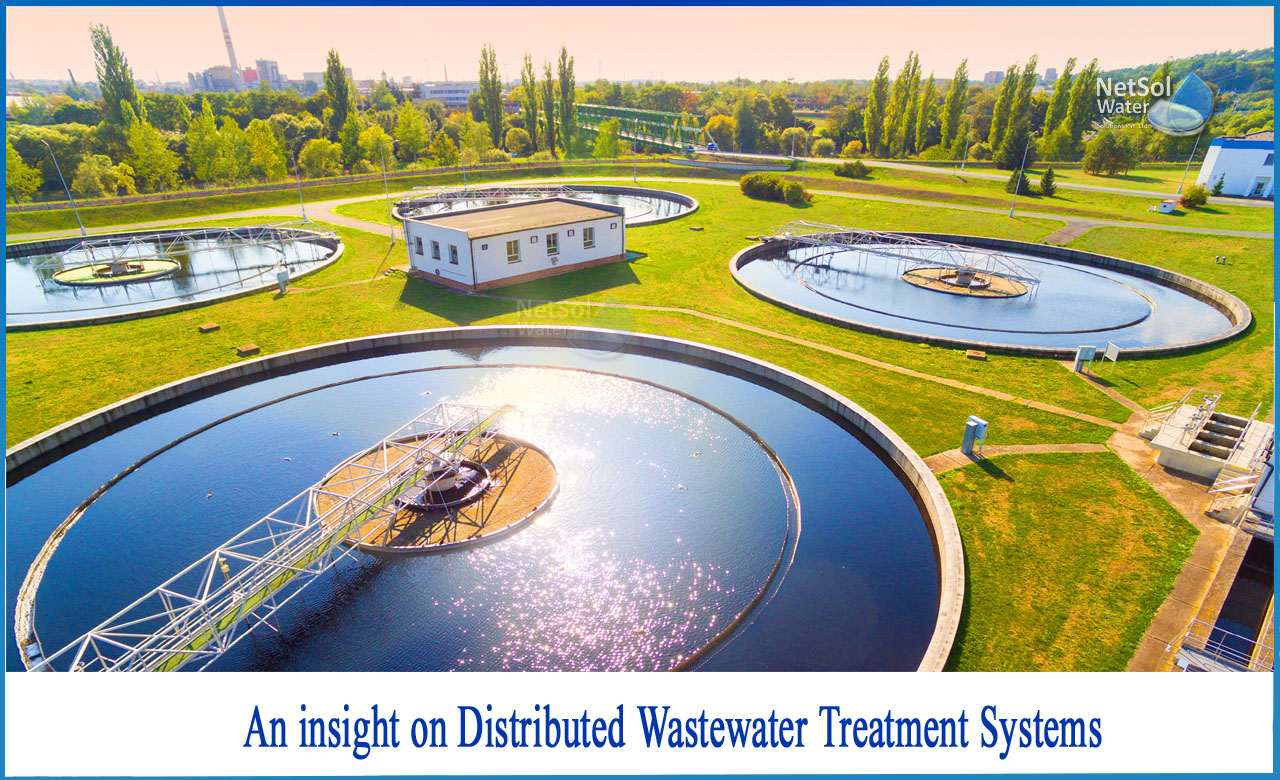What is the Distributed Wastewater Treatment Systems?
Instead of linking into a central facility, distributed treatment implies installing plants where they are needed.
Utility companies have been constructing large-scale, centralized wastewater treatment plants for over a century. These facilities are accompanied by high-capacity pumps and large-diameter sewer mains that transport sewage to the plants, which are often located outside of urban areas.
Even as the energy and telecommunications industries have progressed, this model has remained basically unchanged.
The distributed treatment model is a new wastewater treatment model that has just evolved. Multiple, smaller treatment units are put closer to the point of need in the distributed therapy approach.
This has number of advantages, including:
1: There is no requirement for large-scale collection systems.
2: Energy consumption is reduced.
3: Scalability.
4: Environmental risks and impacts are reduced.
5: Reusability of treated water on a local level.
6: Savings on the initial capital investment are significant.
7: Maintenance and operational expenditures are reduced.
Treatment that is not centralized
"Decentralized" is a subset of "distributed" systems. These phrases are frequently used interchangeably in the water and wastewater treatment industries, however, there is a significant difference.
Independent, small- or medium-scale treatment plants are placed near a source of water or wastewater in decentralized treatment. Local entities gain physical and managerial autonomy as a result of decentralization.
While distributed treatment systems and decentralized treatment systems have similar scalability and siting features and frequently use the same modular, containerized technology, the distinction is that distributed treatment systems are physically or managerially linked to a larger system.
Value of a Distributed System
1: Economic
Terrain, climate, shortage of people, and an inability to attain the economies of scale required to maintain a centralized facility, are all obstacles to creating a traditional, centralized systems in a rural area. The infrastructure, maintenance, and energy expenses of extending the collection system network to connect outlying projects to a centralized facility must be addressed by urban communities. Because of the smaller infrastructure and cheaper energy, operations, and maintenance expenses, distributed or decentralized systems can be a less expensive option.
2: Environmental
Aquifer depletion can be mitigated via distributed or decentralized solutions. In the watershed where it was generated, effluent is either discharged or reused. They also aid in the preservation of a community's preferred land use patterns. Finally, they may consume less energy.
The energy consumption of distributed or decentralized systems is intrinsically lower due to their smaller size. However, decreased energy usage is due to shorter distances over which wastewater is transported, which reduces the facility's pumping needs.
A small distributed or decentralized system's compact size gives communities greater control over where the system is installed, resulting in better landscape integration and less interruption.
3: Technical/Logistical
Installation and implementation of decentralized systems can be less time consuming due to their smaller size. Because of the reduced footprint, the system is easier to lay out and install; alternate sewers can be installed at lesser depths in the earth; and these systems can be employed in difficult terrain, typically routing around obstructions or following the contour of the land.
Conclusion
Water and wastewater treatment plants are built to speed up the natural purification process. The natural process is overburdened by billions of humans and significantly more wastewater.
The volume of wastewater produced without wastewater treatment would create destruction, as it does today in developing countries. Over 80% of all wastewater is discharged without treatment around the world. In the countries that do have wastewater treatment facilities, they use a variety of technologies to purify water and return it to the environment, with the goal of keeping humans and the environment safe and thriving.
How can Netsol Water help?
Netsol Water is a significant water and wastewater treatment firm in India, offering WTP, WWTP, STP, ETP and RO manufacture, among other services. We've made it our mission to save the planet. The company creates equipment’s and is committed to providing practical solutions that help businesses flourish.
We are committed to providing our valued customers with hands-on service, expert counselling, and training. Every environmental problem and its management have a solution in us. We can provide facilities to treat effluent from all industries, be manufacturing or processing.
Netsol Water is Greater Noida-based leading water & wastewater treatment plant manufacturer. We are industry's most demanding company based on client review and work quality. We are known as best commercial RO plant manufacturers, industrial RO plant manufacturer, sewage treatment plant manufacturer, Water Softener Plant Manufacturers and effluent treatment plant manufacturers. Apart from this 24x7 customer support is our USP. Call on +91-9650608473, or write us at enquiry@netsolwater.com for any support, inquiry or product-purchase related query.



